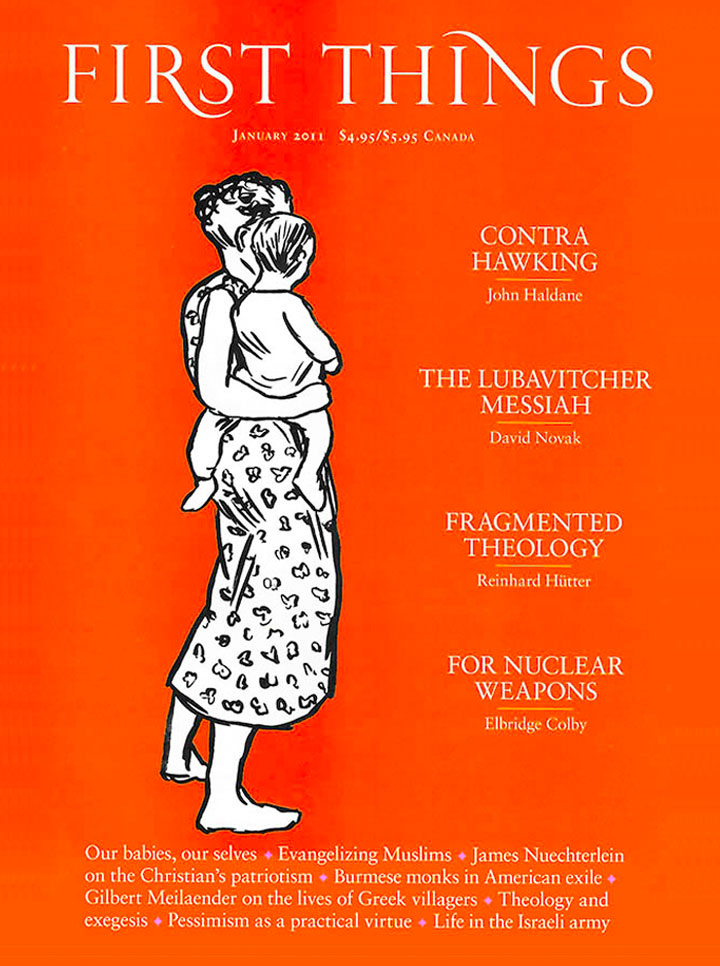The Friends We Keep
by Laura Hobgood-Oster
Baylor, 230 pages, $19.95
n
Laura Hobgood-Oster’s new book on animals is one of the best examples of this increasingly popular subgenre in theological ethics. She draws from her personal experience and from stories about saints (especially the Celtic kind) to construct a heartfelt, though unsystematic, theology of animal compassion. Any critic of her work needs to put it in its rhetorical context. She is writing to the cultured despisers of Christianity, hoping to demonstrate just how progressive Christianity is, but she is also eager to affirm their prejudices about Christianity’s failures and limitations. Indeed, her book is representative of all that is good and bad about the current explosion of theological interest in animals. The good is easy enough to point out. Her writing is graceful, and the stories are moving. The bad is right there on the surface as well. Why do books of this kind have to work so hard to be so wrong about the Christian faith?
Some of Hobgood-Oster’s historical analysis tries too hard to put the despisers at their ease. For example, she is quick to criticize the British evangelicals who were the first to work for humane treatment of animals in the West by claiming they were informed by “a certainty that Christian culture was the only true and right way to live.” She can also condescend to her Christian readers, as when she cautions them to remember that, in the Roman coliseums, “the lions were as likely to be victims of that system as the Christians” and “if sheer numbers are any indication it was likely safer to be a Christian in the Roman system of games than to be an animal.”
More substantially, Hobgood-Oster gets the evolution of animal compassion exactly backwards: “As humans became and continue to become more urban and less connected to animals and the natural world around them, animals are increasingly removed from the sacred circle of hospitality.” Actually, as many historians have shown, the less contact humans had with animals, the more they could idealize and thus “befriend” them.
The author’s reading of the Bible is not without problems either. She looks to Psalm 104, which depicts God feeding the wild animals, as evidence for her position: “Praise for divine hospitality and for the centrality of animals to the whole picture of life on Earth is central to the vision of this psalm.” That is true, but she does not point out that God’s hospitality to animals cannot be the same as our own, since He creates them and we have to live with them. Moreover, the food God gives the wild animals is, of course, other, weaker animals.
The root of Hobgood-Oster’s theological problem is that she affirms Letty Russell’s comment that “the gospel is situation variable,” which authorizes her to praise mythic portraits of Celtic Christianity and criticize any theologian who ranks God’s creatures in some kind of hierarchy. Aquinas, predictably, comes in for harsh treatment.
Two truly disturbing claims stand out. First, Hobgood-Oster passes on the allegation, popular these days on countless websites, that Pope Gregory IX’s bull against a heretical sect “began a series of mass slaughters of cats throughout Europe.” The bull, Vox is Rama , does mention the role of cats in satanic rituals, but there is no evidence linking it to the slaughter of cats.
Second, she passes into wider distribution a “Coptic apocryphal work” that other animal theologians have used, beginning with Andrew Linzey. It is a story of Jesus confronting a man who beats his mule and telling him to “go on and beat it no more, that you also may find mercy.” I have long wondered where this story really came from, so I looked up her source, a 1957 publication that admits there is “considerable mystery surrounding it.” The author traces it to a writer who “drew it from an earlier writer, but failed to trace its history owing to the latter’s death.” It is time to let this story rest in peace, if there is peace for fraud and deception.
The problems with this book, in the end, are common to the genre. Animals are lifted up by putting Christianity down, and scholarly standards are kept remarkably low.
n Stephen H. Webb is a professor of religion and philosophy at Wabash College.

